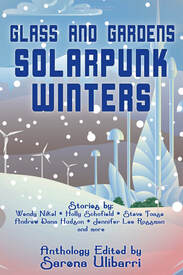 Guest Blog by Thomas Badlan I’ve been obsessed with the end of the world for a long time. I can remember reading Stephen King’s The Stand when I was a teenager and being enthralled watching a society fall apart. In recent years I joined a local ‘Post-Apocalyptic Book Club’ in my home city of Manchester. We’ve read a lot of stories about the apocalypse, featuring a surprising variety of genres, tones and subject matter. Stories of people surviving and struggling against zombies, asteroids and pandemics, even carnivorous jam. Almost all of them were weighty stories, featuring wide-spread destruction and death. I’m even currently writing a novel about the end of the world, about the loss of all electrical energy to the world and the ramifications of such an event. I know plenty about the end times. So when I discovered a call for submissions about ‘positive’ post-apocalyptic fiction, I was surprised. It was a breath of fresh air. After cannibalism and nuclear war, it was nice to discover a sub-genre as optimistic as solarpunk even existed. It was new to me, though I was aware of its more famous cousins: cyber- and steam-. Its themes, of equality, adaptability and harmony were something that felt invigorating, even liberating, because it freed me from the usual tropes of armed conflict and horrible violence. Conflict is the fuel writers use to propel their characters forward, but in my story Orchidaceae I didn’t need all that much of it, just a disagreement about direction. I had always wanted to write something about the Svalbard Seed Vault, I’d come across it when researching other works. When I started writing, I had mused about having my characters doing battle against armed invaders trying to take the seed vault away from them. I quickly realised though: I didn’t need any of that. That was the obvious way to create drama. It was cheap and unnecessary. Instead the conflict would come about because two adults had a disagreement about policy. They would have a conversation and discover that, in truth, they were both on the same side. I recently visited the Eden Project in Cornwall, a beautiful county in the South of the UK. If you’re ever in that little corner of the world I highly recommend a visit. It hadn’t really entered my mind when I conjured the Svalbard Recovery Project’s domes and greenhouses, but the Eden Project is very much cut from the same cloth. There are two enormous domes; the Rainforest and Mediterranean Biomes. Both are home to thousands of species of plants, protected from the sometimes freezing elements and carefully tended by a diligent staff. The Eden Project does serious conservation work but it’s also a tourist attraction. When I visited one wet autumn afternoon I found it full of families enjoying its humid, vibrant pathways. I feel that sometimes plants are often overlooked in this age of climate emergency. We fret more about the loss of animal species than we do about plants but the truth is that the flora of the Earth is the bedrock on which all life survives. It’s important to protect these environments from the ever-encroaching reach of mankind. Just before Christmas, my partner and I are going tree planting. I believe it’s important to remain connected to the natural world and every single effort of conservation or restoration is important. We are the only species on this planet that has the power to destroy or save the world. Immersing oneself in the apocalypse is fun for a while, but in truth, no-one wants to see such stories made reality. Thomas Badlan has been an aspiring writer for as long as he can remember. He studied Creative Writing at the University of Derby. He is a long standing member of Manchester’s Monday Night Writers Group and currently works a literacy teaching assistant. “Orchidaceae” in Glass and Gardens: Solarpunk Winters is his first published story.
0 Comments
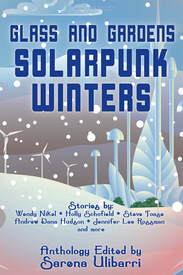 Guest Blog by R. Jean Mathieu "Mon pays, ce n'est pas un pays, c'est l'hiver" kicks off the anthem of the Quiet Revolution. My country, it is not a country, it's winter. "Je me souviens" is the national motto of the "nation within the Canadian confederation." I remember. And before it was a technical term in the social sciences, "la survivance" was our collective hunkering down to stay French and stay Catholic until le bon roi came back for us, to free us from the English. Any day now. I found out I was French when I was eight years old, on the first day of second grade, when Mrs. Gallagher told us we would be signing our given and family names. "But," I wailed, "I can't spell my last name!" Ever since, I've been living in a bilingual world, with a mother tongue and a langue paternelle. It got a shot in the arm when I went to college to learn the tongue my father forgot, and again when I first heard neo-trad, and again when I married a Francophile with a better Parisian accent than mine. And it was that bilingual world I wanted to share. Because I remember, and I wanted to remind everyone else. In "Glacehouse," Mackenzie grew up in monolingual English in an Alberta finally shorn of effete Eastern frogs, while Marie-Pier grew up black… but at least she speaks French eh mon 'sti? And with a surname about as Quebecois as, say, Hickock is American. Their rainy, muggy Montreal is still bilingual, still thanks to the Anglophone East End Jews and Chinese. Their conversation starts with "Bonjour-hi!" and ebbs and flows back and forth between the two tongues. And they can ebb back and forth… in private, and outside the glacehouse. Because Dr. Corriveau, that pure lain, has a very specific Quebec in mind. It's the old Quebec of the Grand Noirceur (the Great Darkness), where pure and happy habitants tilled their thin soil and went to mass and did not much question their English-speaking betters. The Quebec before electricity came along in the 1940s. The Quebec that was still a bastard child of two peoples, the French and the (real) Canadians, rather than a people unto themselves, the Quebecois. He would not dream of English adulterating his pure speech any more than he would dream of American mustard greens springing up beneath his hibernating sugar maples. In both cases, he would love to release his hiver out into the pays. That pays is rightfully hiver, after all. They had a third referendum to prove it. They have political independence, so why, with their weakened economy and reduced standing in a changing world, is their precious French and French way of life being driven back by the all-consuming economic force of English North America? Never mind, just keep the old, pure Quebec under glass to remember with. Right now, us cousins south of the 49th parallel are having a bit of a cultural renaissance. David Vermette's A Distinct Alien Race is the first great history of Franco-America. Résonance is our literary journal. Jesse Martineau's French-Canadian History Podcast showcases the Americans grappling with the realization that we are French. The only way to preserve le pays d'hiver is to release it out into the wild, to achieve equilibrium with the ecology that surrounds us. The only way for our families to remember our French, to remember how to spell our own names, is to become bilingual. A franco-californien armed with a wok and a word processor, R. Jean Mathieu has hauled sail, served tea, hung beef, sold cell phones, and even used his own coat as a zip-line sixteen stories above the streets of Hong Kong. He writes every flavor of fiction under a variety of noms de plume. He and his wife, Melissa, keep a good table when not writing side-by-side or chasing trains to the next adventure. You can find Mathieu’s work in Ecopunk!, Glass and Gardens: Solarpunk Winters, and Amazon.com.
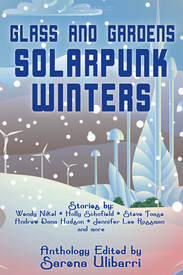 Guest Blog by Steve Toase Sometimes events just slot together perfectly. Back at the start of 2019 I pitched for a writing project looking at different ways of addressing climate change. As part of my application I put forward several ideas, one of which was inspired by penguins. Penguins have really efficient methods of managing their ambient temperature. The structure and arrangement of their plumage, with large feathers and soft down beneath, allows the bird to trap air creating a pocket of insulation. If the temperature rises then the feathers can be opened further to allow the air to circulate and carry away excess heat. When it comes to Adélie in "The Fugue of Winter," the need for silence means the feathers are lowered, removing the air pockets, and in effect removing the city's insulation. In Adélie, the feathers themselves are created from grown keratin. In reality keratin (the protein in feathers and hair) is a vast untapped resource, particularly as a result of human grooming. Every time we clean our hairbrush strands of keratin are thrown in the rubbish. Maybe they could be used to create these feather superstructures to help regulate building temperature? In Adélie a second method is used, where synthetic cells mimicking kerantinizing carcinomas (hair producing tumours) are used as organic 3D printers to manufacture the fibres needed to create the feathers. This echoes the structures seen in the work of artists such as Jennifer Willet, with her project BIOTEKNICA. While the feathers are the main focus of the story, there is a second method of temperature regulation. The walls of Adélie are constructed of an inner and outer flexible skin. Between these membranes, cleaned fat from the city's sewerage system is pumped in to act as subcutaneous layer of insulation, which again mimics penguin anatomy (okay, not the pumps, but the layer of blubber). The advantage of this for the Adélie is twofold. Firstly, it keeps Adélie warm and insulated from the ravages of the hostile conditions outside. Secondly, it keeps the sewerage system free of fatbergs, allowing other waste to be disposed of more efficiently. In Adélie the community has found ways to live with its waste, and use it to help the community survive. Maybe that is something we will all need to consider in the future, as well as being inspired by penguins. Steve Toase lives in Munich, Germany. He writes regularly for Fortean Times and Folklore Thursday. His work appeared in The Best Horror Of The Year 6, and two of his stories have just been selected for Best Horror of the Year 11. He also likes old motorbikes and vintage cocktails.
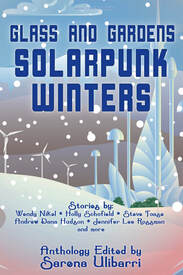 Guest Blog by Jerri Jerreat Climate Change is raging across my country, Canada. Imagining Toronto, Canada in the future was not difficult. Already, in Ontario, we have unusual hurricanes, tornados, and freezing rain when we ought to have fresh white snow. Our western provinces suffer from unstoppable wildfires and black skies full of smoke; our east coast is losing beautiful beaches and land to rising sea levels, and facing fiercer storms. The fun challenge was to imagine how we might create solutions to cope with these changes, solutions not based on fossil fuel. Researching all the latest technologies was fascinating. A story, however, always needs to come first. I could preach my solutions, wave them on placards, and attend climate strikes. (On that already.) A short story, I believe, has to grab you, then yank you into the excitement of a person or people in a difficult situation that feels real. The characters have to come alive, and their problems need to become yours. In daily life, I am a teacher, yet I have never written about teaching before, either from the point of view of a student or teacher. I rifled through my memories as a child, a follower at age eleven who, for some inexplicable reason, became a minion to a class bully. Joanne ruled us with her charisma, and we shoplifted and did many things I am not proud of. The one that still haunts me was the unkindness we showed to a new foreign classmate. I have shared that sad story with my own classes, year after year, hoping to guide my students into wiser choices. Some of the scenes are echoes of real discussions with my classes. With grade fives, I always devote a few lessons to imagining that we are the very first group of humans to decide to stop, settle down, and live in a community. What rules should we have to live together peacefully? Every year the students engage in thoughtful and sometimes humorous discussions. One year we built a large village centre together in the schoolyard, using snow. We also write a play together each year. Often a character or two are recent refugees, which allows us to feel a little of the outsider experience, perhaps coming from war-torn Syria, speaking a different language. Whether the play ends up being about a group of comical extra-terrestrials visiting Earth, or a spoof on teenagers, or a play about anxieties ten year olds in our class face — we all learn a little compassion for other people through our writing and our acting of the play. This, I suppose, is my secret teacher mission — to teach open mindedness and open heartedness. Simple ideas became the heart of this story: a child bully, a child victim, and a teacher who won’t let it happen again. Then I set it in Toronto, in the future. Enjoy. Jerri Jerreat's ten-year-old students fought Ontario last year to ban single-use plastic. Environmental themes often emerge in her fiction, which has appeared in Ottawa Arts Review, Yale Review Online among others and in Nevertheless: Tesseracts 21 and Glass and Gardens: Solarpunk Summers. She lives under solar panels near Kingston, Ontario. www.jerrijerreat.com
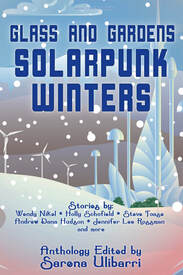 Guest Blog by Catherine F. King When I began “On the Contrary, Yes,” my submission to Solarpunk Winters, I knew that I wanted to set the story in a floating ocean city, and to explore life there. Not an American city, but something in my experience. After casting around the mid-Atlantic, I chose the west coast of France. Now, I’ve lived in France, as a student and as a teacher. I’ve lived in Paris, and was lucky enough to study the city’s history on-site. A word about Paris: it is a city that is well aware of its glamorous reputation, and is happy to trade on it. French as can be, with global connections and loquacious expats. Of old, Paris was the people’s city. When the kings lived in Orleans, Paris grew rich off of trade on the river Seine, and their motto honors the river, and the city’s resilience: fluctuat, nec mergitur. Tossed by the waves, she does not sink. I had no wish to create a second Paris. I chose the name Ys. Ys comes from the folklore of the peninsula of Bretagne, or Brittany in English. The story goes that Ys was a coastal city protected by angels until the people grew wicked. In punishment, the city sank below the waves, with only its king escaping to tell the tale. They say that on a clear day near St. Malo, you can still hear Ys’ churchbells sounding below the sea. They also say that when Paris sinks, Ys will rise again. So I asked myself, would the French people actually name a city after a fairytale? … Yes, I decided, if it would bring in the tourists. So Ys began to take shape. The ocean would be a foundation (the streets, of necessity, became canals), nurturer (tidal generators power the city), and enemy. Fog and cold, every day—so Yssians would bundle up in neon-bright colors. I built a vertical farm, the Conch Shell skyscraper for commerce, and a Christmas market. But still, the spirit of Ys was missing. What are the rituals that Yssians practice, that really make it home for them? I want this high-concept city to feel homey, even loved. An English winter tradition from The Folklore of Discworld (Pratchett and Simpson, p. 2008) gave me an idea. To “wassail” the apple trees, people would toast the trees with cider and shout and sing. They would thank the trees and wake them up, get sap flowing, get ready for spring. This ritual, loud and drunken as it is, acknowledges the duty that humans bear to trees, winter, apples, the natural world. We’re not separate from it, despite what the Industrial Revolution taught us. We’re a part of it. In my story, when visitors Tommie and Amaranth enter Ys by boat for the first time, they see a windbreak made of rows of juniper trees. The native Yssians salute and thank the trees, which welcome them home, which make home safer. The city began to feel more real to me. I know that in Ys, the street food of choice is steamed dumplings, while the liquor of choice is gin. Yssians cheer on their football team against Paris—which may or may not have sunk, but they haven’t given up football. (Plus ça change…) I’ve set the stage as well as I could in less than 800 words, but now it’s up to the readers to furnish Ys with texture and light. I hope the readers enjoy their visit. Catherine F. King is a Los Angeles-based writer. She loves her warm coastal city and worries a lot about how it will endure. Her experience with travel, the Pacific Ocean, and the city of Paris all combined to make this story.
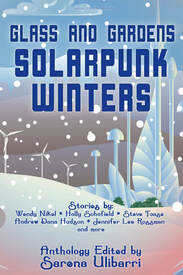 Guest Blog by Tales From the EV Studio and Commando Jugendstil Why a title in Latin, some may ask? A classical education will ruin your life and we can prove it, but that is not the only reason. Viam inveniemus aut faciemus, we will find a way or we'll make one, is a riff on the sentence allegedly pronounced by Carthaginian general Hannibal Barca when his generals asked him how the heck they were going to pass the Alps. It was October, perhaps the beginning of November, and he had some sixty to ninety thousand people and a bunch of elephants to ferry across one of the steepest sections of the Alps. Thing is, while Titus Livius and Polybius make it almost look like he didn't have any help in deciding which pass to take and how to do it, in fact, reading closely, it is clear that Celtic tribes from beyond the Alps had sent envoys to welcome and guide him and his army to Italy. Without diminishing Hannibal's genius nor his balls of high-grade carbon steel, this was not a solitary endeavour but the work of an alliance of people who banded together for a purpose. We chose this title because our story is about people coming together in spite of their differences to face adversity and overcome it through collective effort. When extreme weather strikes Milano, the rescue effort by the team put together by the Commando could not happen without the support of the people who open them a way and find them equipment and pull and haul and toil together, in solidarity with those most affected, regardless of the colour of their skin or the place where their forebears were born. One of the reasons we're so obsessed with Hannibal is that the major identitarian party in Italy used to bang on the drum of the Celtic past of Northern Italy and depict it as an idealised White-only, isolationist past as opposed to the recent waves of immigration, especially from North Africa. That was obviously never true as the Gaulish/Celtic tribes of the Padan Plain traded with Greeks from Massalia and Etruscans from Felsina and Genoa and fought next to the Samnites and other Italics time and time again, but the story of Hannibal completely destroys the very notion of the isolationist white-only Celts. The Insubres of Mediolanum and the Boii from Bononia welcomed the Carthaginians. They saw that army of Black and Brown people coming down from the Alps, half-frozen and battered and angry as heck and said: these are friends, these are blood-brothers. They armed and fed them and stuck with them through thick and thin for almost twenty years, up to Zama and beyond. So let us get that straight: before the idea of Italy as a territorial continuity ever existed, before the Romans were welcome in Milano, Black and Brown people from over the mountains and across the sea were welcome as allies. Our ancestors were never the racist, bigoted simulacra the right-wingers and identitarians like to wave around. The past was never ethnically homogeneous or "pure". We can't let anyone try to make the future fit their a-historical power fantasy. The fight against identitarianism and all forms of white supremacy and xenophobia is something that solarpunk cannot overlook. We need to build a society that works for everybody, that cares for the environment and for people, no matter where they are from or what's the colour of their skin. We will find a way, or we'll make it together. Just like they did. Commando Jugendstil is a real-life small collective of Italian solarpunk creators who aim to conjugate green technology and art to make cities a better place to live in and build creative communities. The incredible folks of Tales From the EV have helped them in translate their visions into fiction and so far this collaboration led to the design of artwork for Mamut Magazine n° 6 (Eco-logos) and Ecología Política n° 57 (Las artes y la ecología política), among other things. In these very days the Commando is trying to make their projects a reality through an EU grant — if all goes well then a solarpunk reality may not be too far away.
Tales From the EV is a posse of emigrant Italian writers who specialise in historical fantasy, archanepunk and scriptwriting for comics. Teaming up with the Commando Jugendstil gave them the chance to write short stories for Mamut Magazine n° 6 (Eco-logos), the independent UK publisher Bear With Me Books and for Glass and Gardens: Solarpunk Summers. They were also invited to the International Turin Book Fair 2019, one of the most important in Europe, to talk about their stories and the solarpunk philosophy. Tales From the EV is interested in climate justice activism as well: they are an active part of the Earth Strike movement.
Guest Blog by Jennifer Lee Rossman
And here we see the writer in her natural habitat, the frozen tundra of Twitter.
It is November 2, 2018. While other creatures are preparing themselves for holidays, the writer knows there is a more important season approaching: an open submission window for an anthology. There are many anthologies vying for her attention, but she has worked with this editor before and has confidence in the editor‘s ability to produce a strong, engaging anthology. But the writer is not prepared.
The writer is no newcomer to submission windows. She has a bookshelf of anthologies that she has contributed to, but she is not confident in her ability. She is just randomly throwing ideas together.
To make matters worse, she has just remembered that she has never actually seen the movie Ferngully and is attempting to base her entire story on a Ferngully coloring book she had when she was five. She will have to collect a large store of research if she is going to make it into this anthology.
Facing certain rejection unless she can find a plot, she expends all of her energy digging through Wikipedia for a fun fact she can base an entire story on.
She has gone off track, though. She was meant to be researching narwhals, not medieval curiosity cabinets. And yet… What is that? She tries not to get her hopes up, but it looks like a tiny seed of an idea.
Emboldened by her success at foraging for ideas, the writer has become overconfident.
Fear overwhelms her. The editor will certainly reject a story set during summer. The writer considers giving up. Maybe this is not the right time to submit stories. Maybe her time for submitting stories is over. But she pokes her head out of her burrow anyway, and she does a Google. Relieved to learn that narwhal migration would be in the right area during winter after all, the writer finishes her story. But there is one more hurdle in her path to publication.
Frantically, the writer goes to the other members of her herd for assistance. Writers are social animals, when the mood strikes them, and her community is integral to her survival.
She arrives to the submission grounds on the first day of the window, and she presents her cover letter and freshly titled final draft to the prospective editor, who recognizes her from past submission windows but must judge the story on its own merits. It is out of the writer‘s hands now…
Jennifer Lee Rossman is a queer, autistic, and disabled author who just thinks narwhals are neat. Her novel Jack Jetstark's Intergalactic Freakshow was published by World Weaver Press in 2018. She blogs at https://jenniferleerossman.blogspot.com and tweets @JenLRossman
GLASS AND GARDENS: SOLARPUNK WINTERS is out today, January 7, 2020! Featuring stories by Wendy Nikel, Holly Schofield, Sandra Ulbrich Almazan, Sarah Van Goethem, Steve Toase, and more, this anthology envisions winters of the future, with stories of scientists working together to protect narwhals from an oil spill, to bring snow back to the mountains of Maine, to preserve ecosystems—even if they have to be under glass domes. They're stories of regular people rising to extraordinary circumstances to survive extreme winter weather, to fix a threat to their community's energy source, to save a living city from a deep-rooted sickness. Some take place after an environmental catastrophe, with luxury resorts and military bases and mafia strongholds transformed into sustainable communes; others rethink the way we could organize cities, using skybridges and seascrapers and constructed islands to adapt to the changes of the Anthropocene. Even when the nights are long, the future is bright in these seventeen diverse tales. Learn more about the authors here.
What Early Reviewers Are Saying"Each of these stories features a wintry, inhospitable setting occupied by tenacious survivors and innovators, and an emphasis on LGBTQ representation and female empowerment runs through each of these visions for more progressive futures…readers will take comfort in this wide range of snowy, hopeful tales." "I’d especially recommend Glass and Gardens: Solarpunk Winters to anyone who wonders what the future might hold for humanity." "What I found most intriguing was that no one gave up. They found other ways to do things. They hid in shelters, grew their own food, and still found joy in life…I found it to be an enjoyable read." About the Anthologist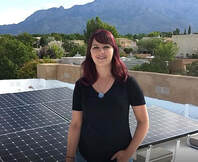 Sarena Ulibarri is Editor-in-Chief of World Weaver Press, and she is also a fiction writer who has been published in magazines such as Lightspeed, GigaNotoSaurus, and DreamForge, as well as anthologies such as Biketopia: Feminist Bicycle Science Fiction Stories in Extreme Futures and The Gamer Chronicles. She lives in a solar-powered adobe house in New Mexico, and can be found online at SarenaUlibarri.com and @SarenaUlibarri. More From This AnthologistMULTISPECIES CITIES
A science fiction anthology in partnership with the Research Institute for Humanity and Nature in Kyoto, Japan Open for Submissions: January 1 - February 1, 2020 Story Length: 500 to 5,000 words Payment: $0.03 per word (USD) + contributor copy In order to attain better futures, we first must imagine them. But at this crucial tipping point for our planet, it’s important to imagine futures that include the many other species we share our world with. Cities tend to be anthropocentric—designed for the comfort and convenience of humans, often with little regard for the plants, animals, and insects local to that area. Science fiction tends toward anthropocentric as well, concerned with either the great achievements or failures of humankind. For this anthology, we want to see more-than-human stories that investigate humanity’s relationship with the rest of the natural world. We’re looking for stories that acknowledge humans as part of a larger ecosystem, for characters who strive for balance with (rather than dominance over) the creatures surrounding them, for settings that depict an optimistic balance of nature and technology. Preference for Asian-Pacific authors (broadly defined) or authors of Asian-Pacific descent. We encourage authors to set their stories in the Asia-Pacific region, or at least include some thematic tie to that part of the world. Authors may wish to envision futuristic cities where people and wildlife can thrive together, or urban landscapes re-designed to heal past ecological destruction. Characters might need to make tough decisions to maintain the multispecies ecosystem of a city, struggle to negotiate coexistence between human and non-human residents, or fight back against a project that would threaten the balance of that ecosystem. Stories could focus on conservation efforts for currently living species, or explore de-extinction processes for species lost due to human impact. Or perhaps an encounter with an extraterrestrial species could serve as a metaphor for how humans interact with the non-human species of Earth. Because this project is inspired by the solarpunk movement, we prefer stories to end on a positive or hopeful note. We want narratives that engage with fundamental political ideas and problems, such as non-human citizenship and ecological justice. Far-fetched situations are acceptable as long as they’re based in some realistic biology and/or climate science. Submissions must be in English; translations are welcome, provided the original author has given permission. Original stories preferred, but reprints that match the theme will be considered. Simultaneous submissions = okay. Multiple submissions = no. How to submit: Send story as a .doc, .docx, or .rtf to solarpunk[at]worldweaverpress[dot]com. Please do not summarize your story in your cover letter! No description or introduction is necessary. The cover letter will not be read by the panel evaluating submissions. |
World Weaver PressPublishing fantasy, paranormal, and science fiction. Archives
February 2024
|
- Home
-
Books
-
All Books
>
- Beyond the Glass Slipper
- Bite Somebody
- Bite Somebody Else
- Black Pearl Dreaming
- Cassandra Complex
- Causality Loop
- Clockwork, Curses, and Coal
- Continuum
- Corvidae
- Cursed: Wickedly Fun Stories
- Dream Eater
- Equus
- Fae
- Falling of the Moon
- Far Orbit
- Far Orbit Apogee
- Fractured Days
- Frozen Fairy Tales
- Glass and Gardens: Solarpunk Summers
- Glass and Gardens: Solarpunk Winters
- Grandmother Paradox
- Grimm, Grit, and Gasoline
- Haunted Housewives
- Heir to the Lamp
- He Sees You When He's Creepin': Tales of Krampus
- Into the Moonless Night
- Jack Jetstark's Intergalactic Freakshow
- King of Ash and Bones (ebook)
- Krampusnacht
- Last Dream of Her Mortal Soul
- Meddlers of Moonshine
- Mothers of Enchantment
- Mrs Claus
- Multispecies Cities
- Murder in the Generative Kitchen
- Recognize Fascism
- Scarecrow
- Sirens
- Shards of History
- Shattered Fates
- Skull and Pestle
- Solarpunk (Translation)
- Solarpunk Creatures
- Solomon's Bell
- SonofaWitch!
- Speculative Story Bites
- Trenchcoats, Towers, and Trolls
- Weredog Whisperer
- Wolves and Witches
- Anthologies and Collections
- Novels
- Novellas
- Fairy Tale
- Fantasy
- Romance
- Science Fiction
- Urban/Contemporary Fantasy
- Young Adult SFF
-
All Books
>
- Blog
- About
- Contact
- Press / Publicity
- Newsletter Signup
- Privacy Policy
- Store

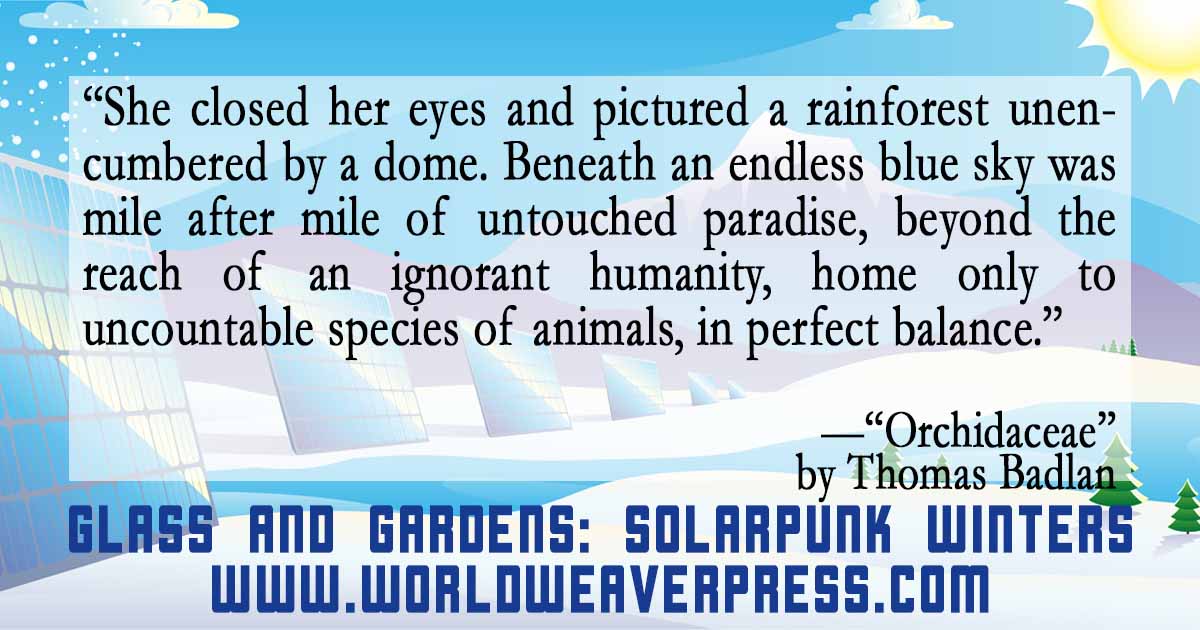
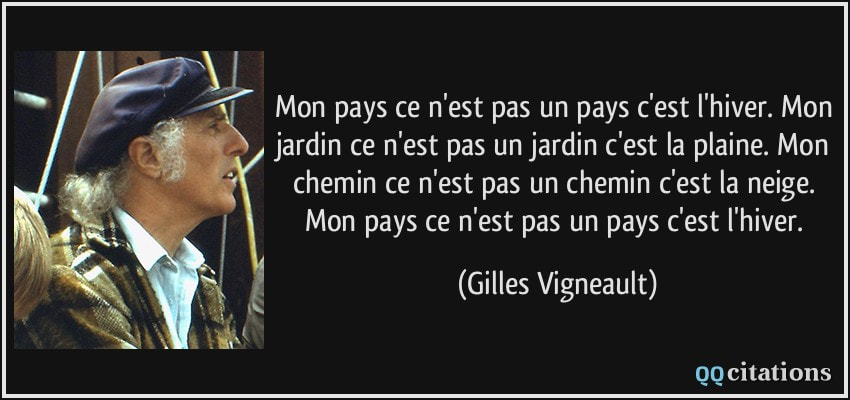
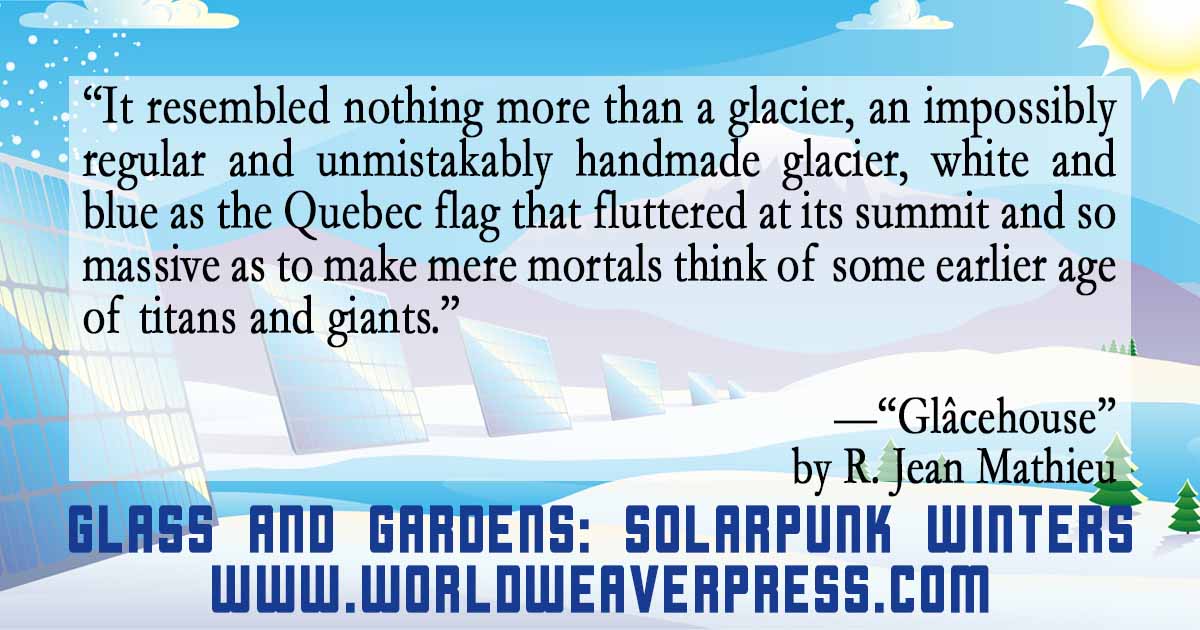
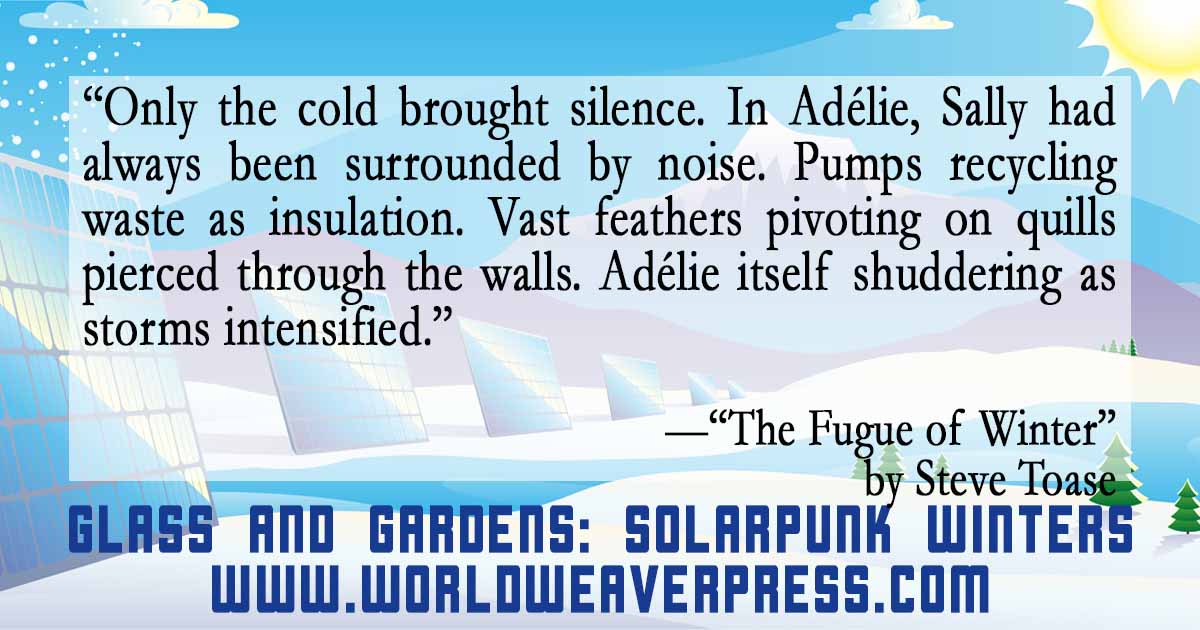
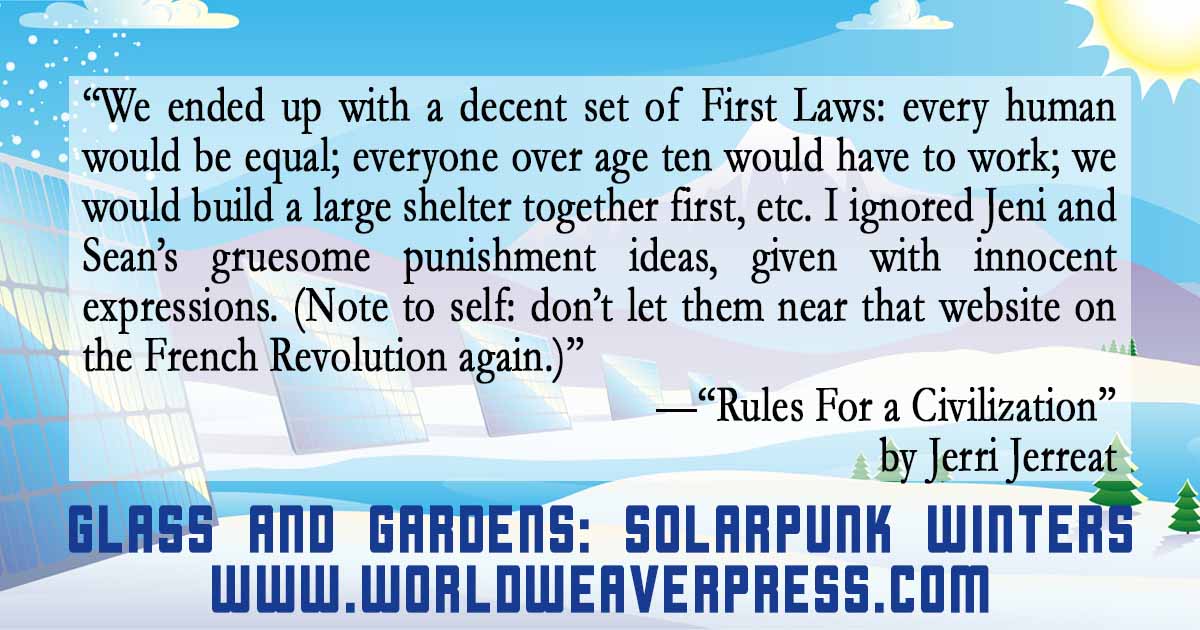
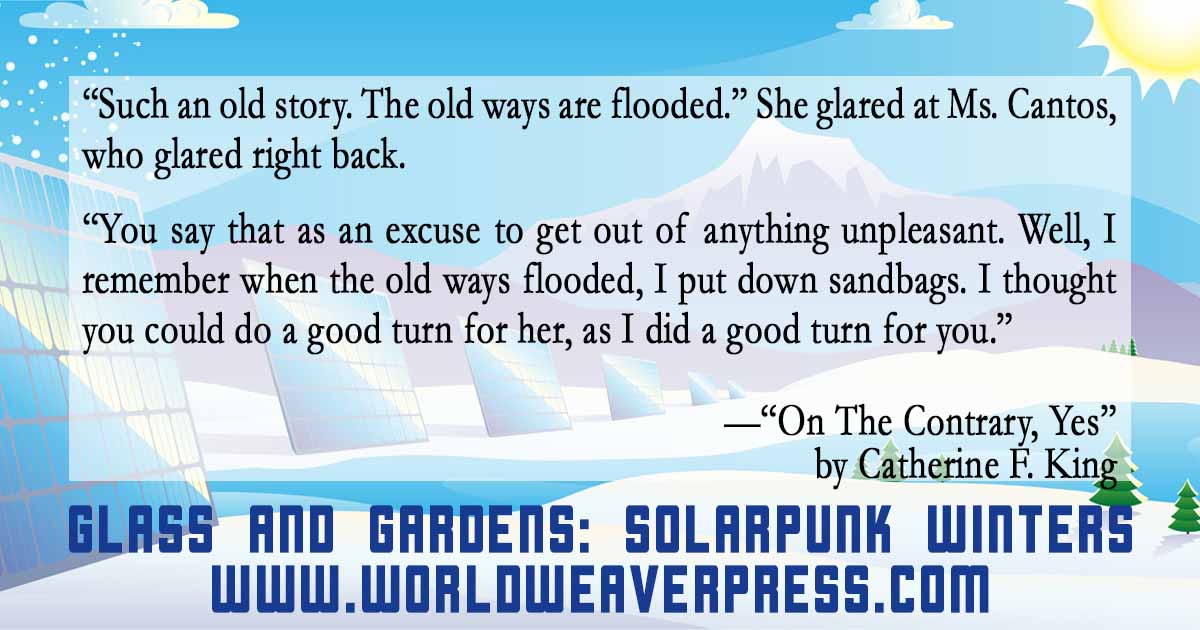
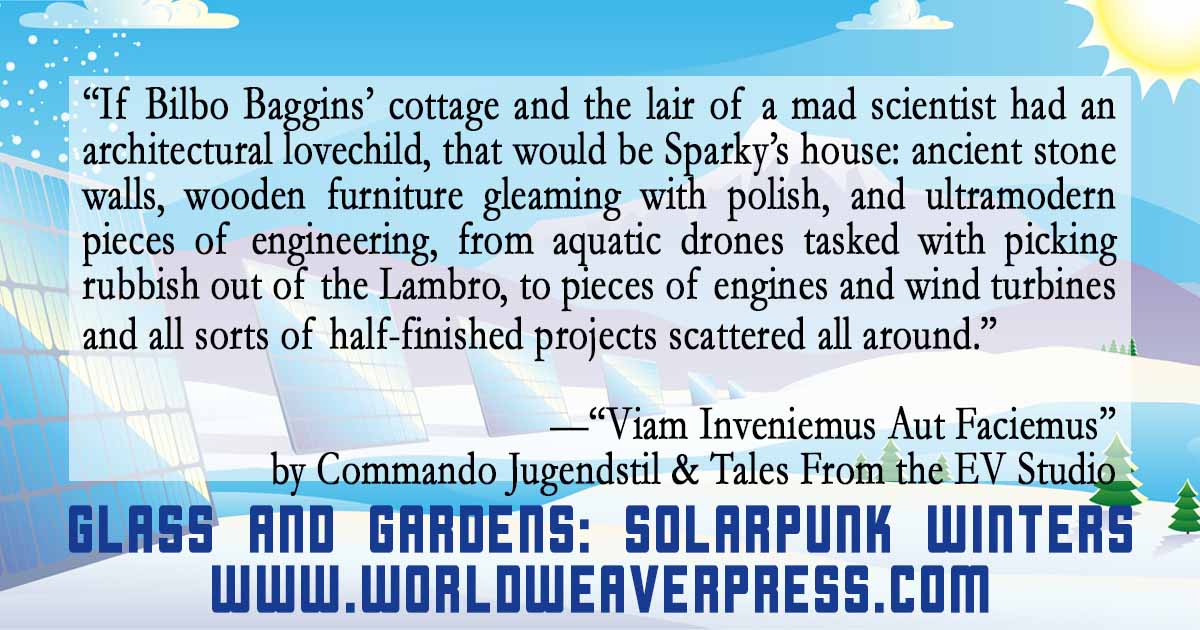
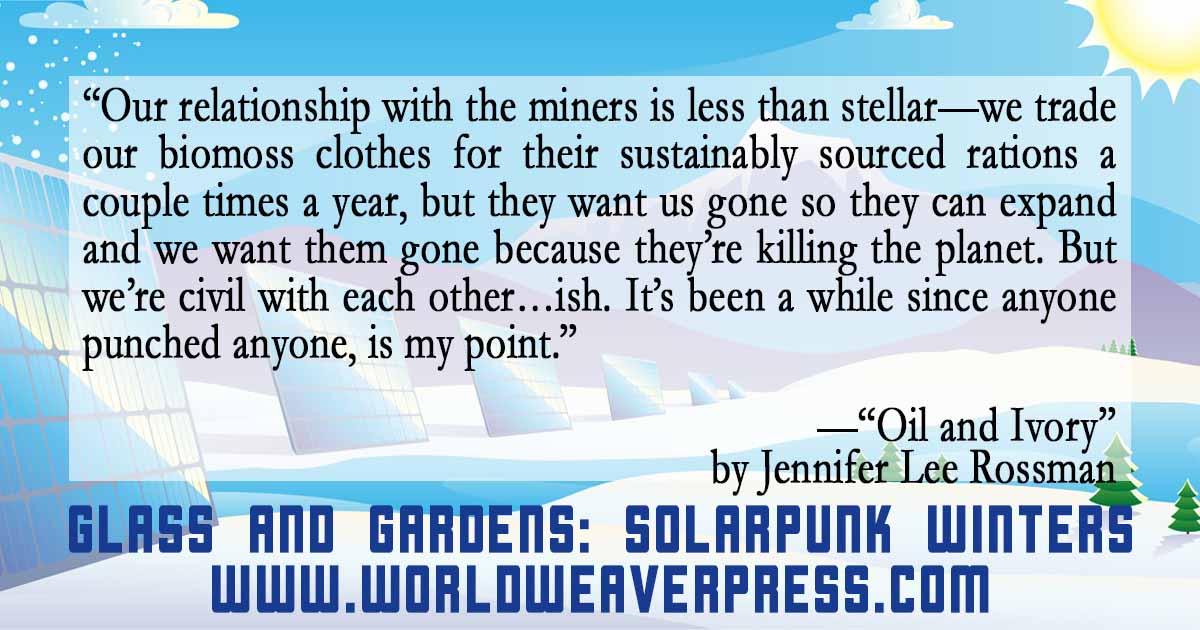
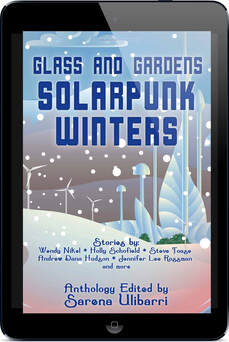
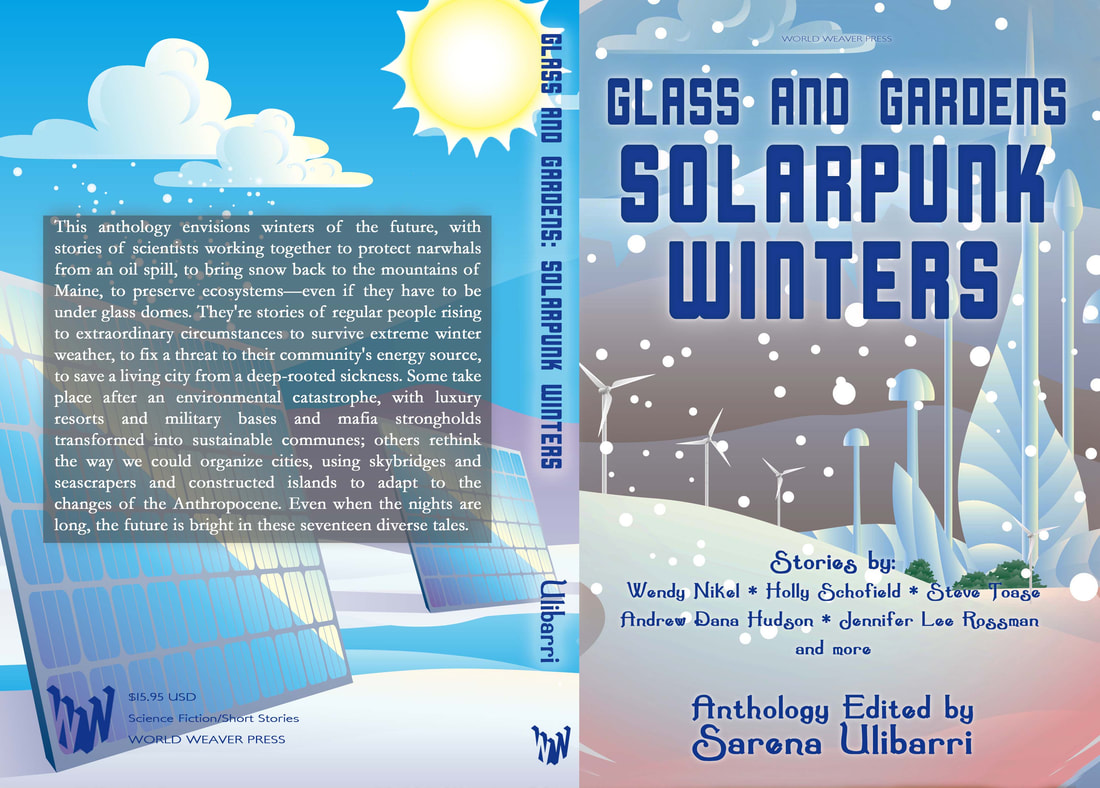
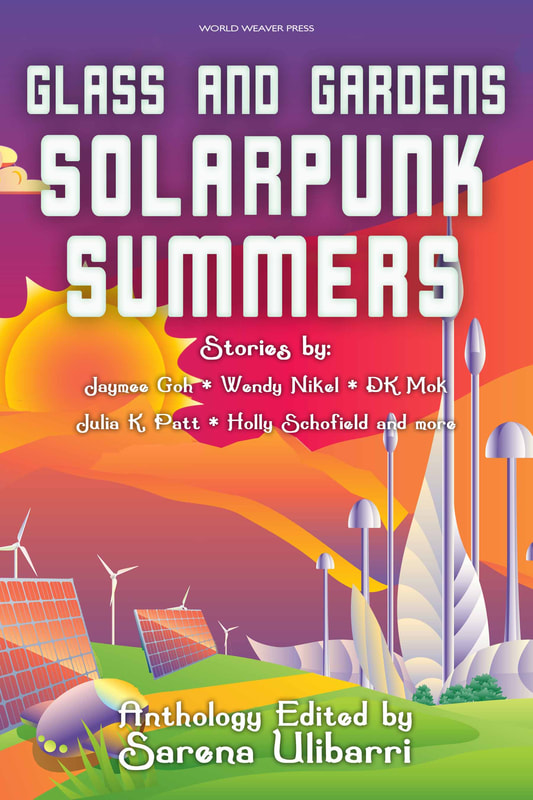
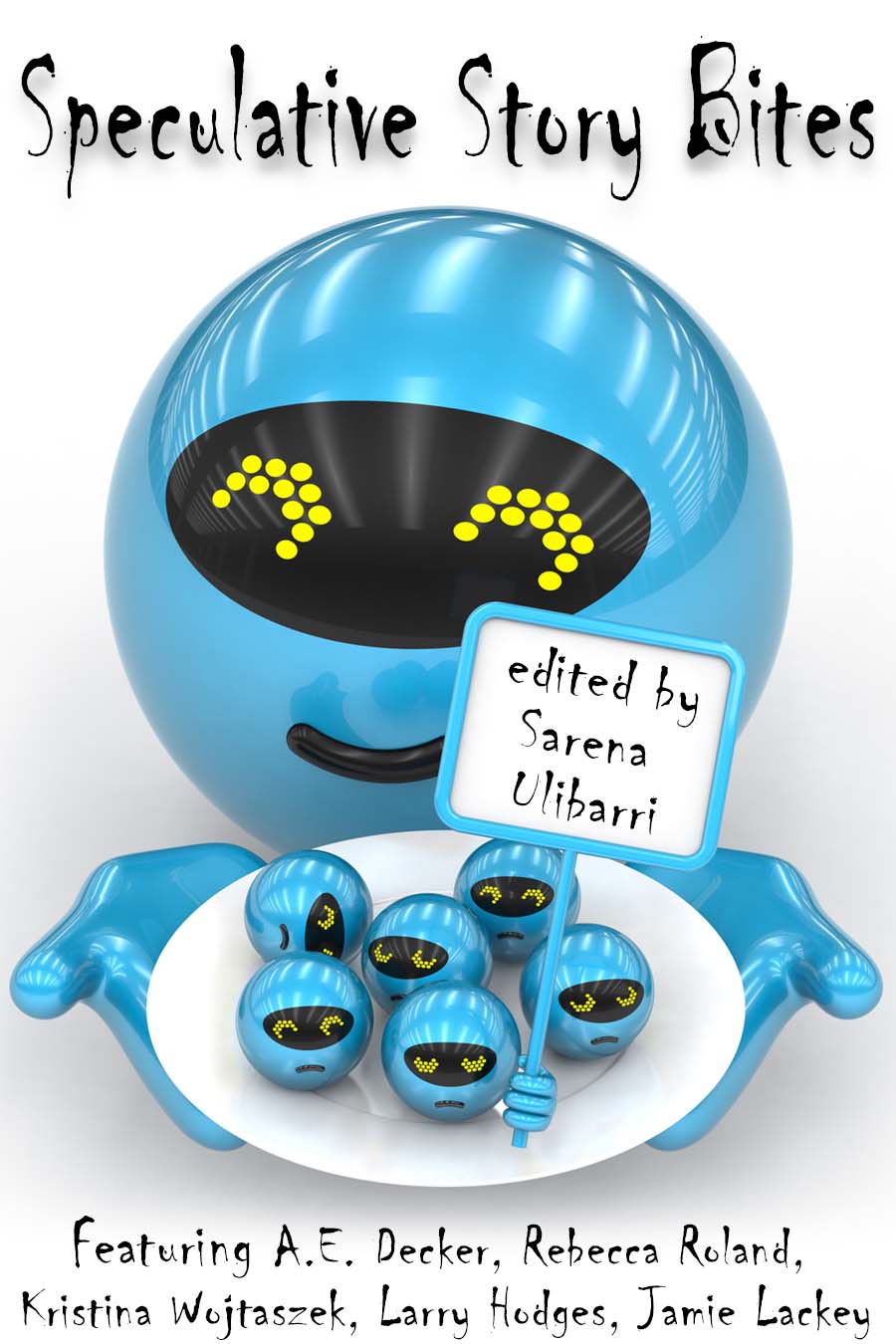
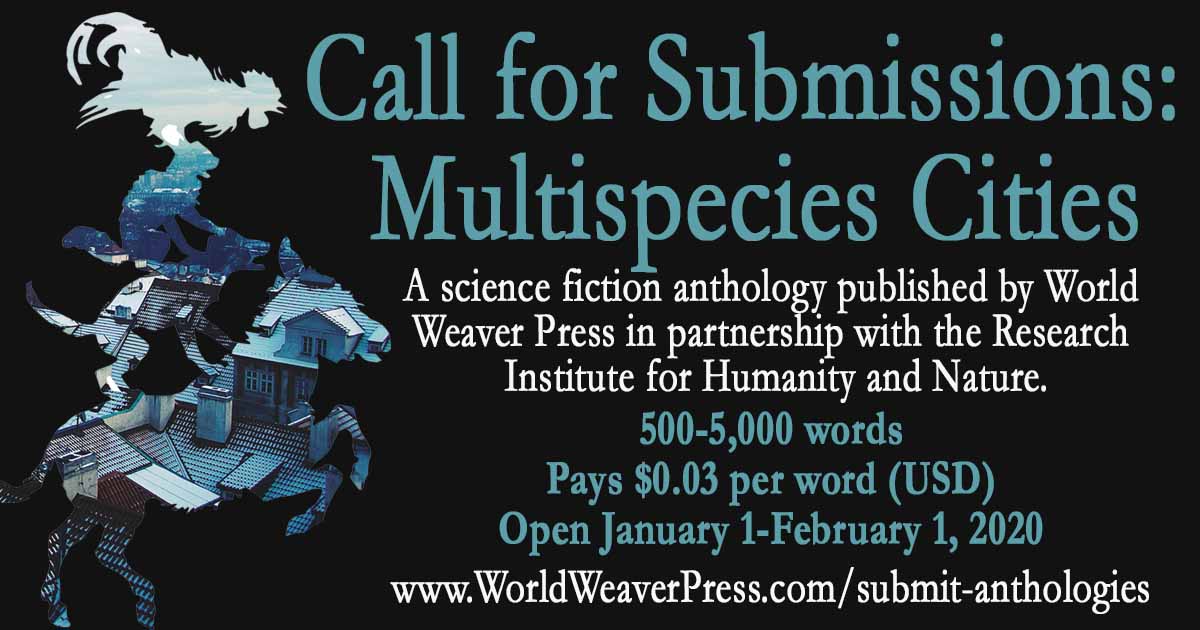
 RSS Feed
RSS Feed